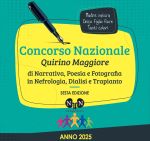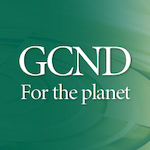New habits and the evolutionary paradox
DOI:
https://doi.org/10.33393/gcnd.2021.2354Keywords:
Environmental sustainability, Healthy and unhealthy habits , Human evolution, Inflammation, Physiological paradoxesAbstract
Human evolution lasting millennia has allowed us to develop mechanisms in physiology capable of defending ourselves from the main difficulties. We can accumulate fat as a reserve, and we have acute inflammation as a response to pathogens and platelets to defend us from bleeding, but precisely the main defenses are now transformed due to the changed living conditions of part of humanity into potential enemies, creating a very dangerous paradox.
References
- Unamuno X, Gómez-Ambrosi J, Rodríguez A, Becerril S, Frühbeck G, Catalán V. Adipokine dysregulation an adipose tissue inflammation in human. First published: 11 July 2018. https://doi.org/10.1111/eci.12997 DOI: https://doi.org/10.1111/eci.12997
- Freeman CR, Zehra A, Ramirez V, et al. Impact of sugar on the body, brain, and behavior. 2018;23:2255-2266. https://doi.org/10.2741/4704 DOI: https://doi.org/10.2741/4704
- Furman D, Campisi J, Verdin E, et al. Chronic inflammation in the etiology of disease across the life span. Nat Med. 2019;25:1822-1832. https://doi.org/10.1038/s41591-019-0675-0 DOI: https://doi.org/10.1038/s41591-019-0675-0
- Cassini A, Hogberg Diaz L, Plachouras D, et al. Attributable deaths and disability-adjusted life-years caused by infections with antibiotic-resistant bacteria in the EU and the Europe-an economic area in 2015: A population-level modeling analysis. The Lancet. 2019;19:56-66. https://doi.org/10.1016/S1473-3099(18)30605-4 DOI: https://doi.org/10.1016/S1473-3099(18)30708-4
- Epel ES, Lithgow GJ. Stress Biology and Aging Mechanisms: Toward Understanding the Deep Connection Between Adaptation to Stress and Longevity. The Journals of Gerontolo-gy: Series A. Volume 69;Suppl_1:10-S16. https://doi.org/10.1093/gerona/glu055 DOI: https://doi.org/10.1093/gerona/glu055
- Booth FW, Chakravarthy MV. Cost and Consequences of Sedentary Living: New Battle-ground for an Old Enemy, 2002. President’s Council of Physical Fitness and Sports Research Digest, Series 3, No. 16. Washington, DC: President’s Council on Physical Fitness and Sports. 2002. https://eric.ed.gov/?id=ED470690 (data di accesso ottobre 2021) DOI: https://doi.org/10.1037/e603462007-001
- Cohen S, Janicki-Deverts D, Miller GE. Psychological stress and disease. JAMA. 2007;298(14):1685-1687. https://doi.org/10.1001/jama.298.14.1685 PMID:17925521 DOI: https://doi.org/10.1001/jama.298.14.1685
- Mariani D, Capitanini A. Clima ambientale e clima emotivo: due pilastri evolutivi poco tan-gibili ma tremendamente importanti per la nostra vita. Giornale di Tecniche Nefrologiche e Dialitiche. 2020(32):11-14. https://doi.org/10.33393/gcnd.2020.1100 DOI: https://doi.org/10.33393/gcnd.2020.1100
- Willett W, Rockstrom J, Loken B, et al. Food in the anthropocene: The EAT-Lancet Commis-sion on healthy diets from sustainable food systems. Lancet. 2019;393:447-492. PMID: 30660336. DOI: 10.1016/S0140-6736(18)31788-4 DOI: https://doi.org/10.1016/S0140-6736(18)31788-4
- Earth Overshoot Day 2020. https://www.isprambiente.gov.it/it/archivio/notizie-e-novita-normative/notizie-ispra/2020/08/earth-overshoot-day-2020 (data di accesso ottobre 2021)
- Rodulfo JEA. Sedentary lifestyle a disease from XXI Centu-ry. https://doi.org/10.1016/j.arteri.2019.04.004 DOI: https://doi.org/10.1016/j.arteri.2019.04.004
- Rapporto nazionale pesticidi nelle acque dati 2017-2018, Istituto superiore per la protezio-ne e la ricerca ambientale (ISPRA). https://www.isprambiente.gov.it/it/pubblicazioni/rapporti/rapporto-nazionale-pesticidi-nelle-acque-dati-2017-2018 (data di accesso ottobre 2021)
- Ditzen B, Schaer M, Gabriel B, Bodenmann G, Ehlert U, Heinrichs M. Intranasal oxytocin increases positive communication and reduces cortisol levels during couple conflict. Biol Psychiatry. 2009;65(9):728-731. https://doi.org/10.1016/j.biopsych.2008.10.011 PMID:19027101 DOI: https://doi.org/10.1016/j.biopsych.2008.10.011
- Kosfeld M, Heinrichs M, Zak PJ, Fischbacher U, Fehr E. Oxytocin increases trust in hu-mans. Nature. 2005;435(7042):673-676. https://doi.org/10.1038/nature03701 PMID:15931222 DOI: https://doi.org/10.1038/nature03701
- Ditzen B, Schmidt S, Strauss B, Nater UM, Ehlert U, Heinrichs M. Adult attachment and so-cial support interact to reduce psychological but not cortisol responses to stress. J Psycho-som Res. 2008;64(5):479-486. https://doi.org/10.1016/j.jpsychores.2007.11.011 PMID:18440400 DOI: https://doi.org/10.1016/j.jpsychores.2007.11.011
- Heinrichs M, Baumgartner T, Kirschbaum C, Ehlert U. Social support and oxytocin interact to suppress cortisol and subjective responses to psychosocial stress. Biol Psychiatry. 2003;54(12):1389-1398. https://doi.org/10.1016/S0006-3223(03)00465-7 PMID:14675803 DOI: https://doi.org/10.1016/S0006-3223(03)00465-7
- Colombo E, Senn L. I costi economici e sociali della sedentarietà. Med Sport (Roma). 2015;68(2):345-356.
- Global action plan on physical activity 2018-2030: More active people for a healthier world. World Health Organization (WHO). 2018. http://apps.who.int/iris/bitstream/handle/10665/272722/9789241514187-eng.pdf












